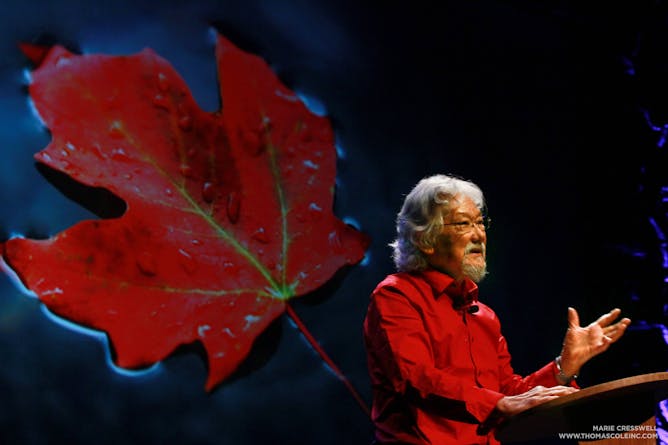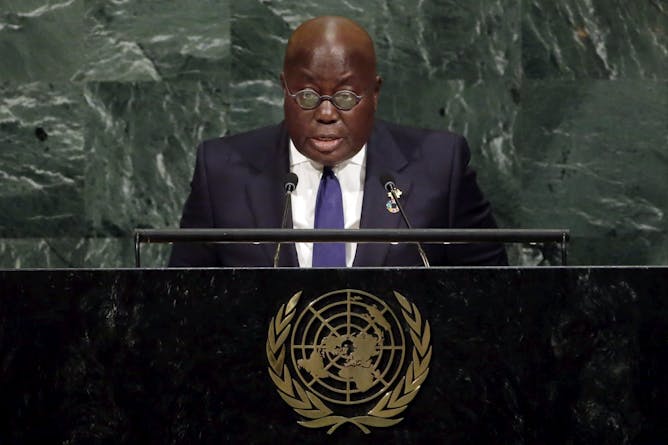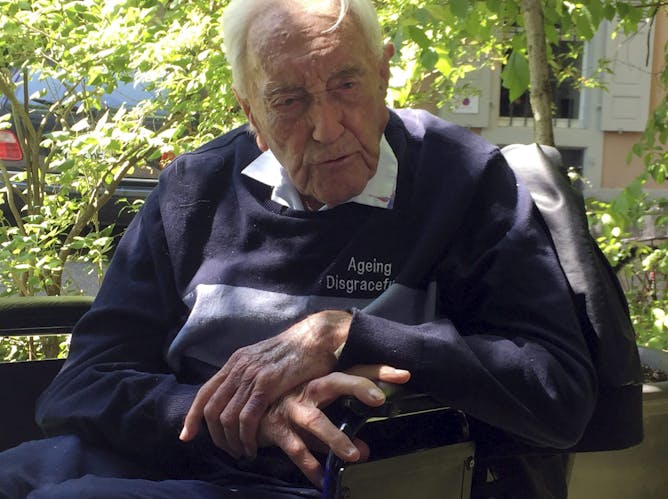|
Those of you who believe that sparing the rod spoils the child won’t like our lead story. Today in The Conversation Canada, Monique Sedgwick, Jeffrey MacCormack and Lance Grigg report on a fascinating project taking place at the University of Lethbridge in which youth involved in the criminal justice system are participating in a chess program that helps them develop “skills in reasoning, problem-solving, paying attention, planning, focusing and decision-making.”
With the red-hot debate going on between Alberta and British Columbia over oil pipelines, another controversy has broken out over the decision by the University of Alberta to award an honorary degree to David Suzuki. But John Bergeron of McGill University defends the choice and reviews Suzuki’s impressive career as a scientist before he became more famous as an environmentalist and broadcaster.
James Kwateng-Yeboah of Queen’s University looks at attempts by Ghana to become self-sufficient, but explains the African nation has trouble collecting taxes from its citizens even though many of them voluntarily donate to religious organizations.
And finally, Samuel Blouin of the Université de Montréal explains how Switzerland has become home to “suicide tourism” and what Canada could learn from a nation that has allowed medically assisted deaths for several decades.
Regards,
|

Preliminary research into the Chess for Life Program in Alberta, Canada, shows that youth who are sentenced to chess instruction after committing non-violent crimes are learning useful life skills.
(Shutterstock)
Monique Sedgwick, University of Lethbridge; Jeffrey MacCormack, University of Lethbridge; Lance Grigg, University of Lethbridge
In Alberta, an alternative initiative sees youth who commit non-violent crimes sentenced to 25 hours of chess instruction with a University of Lethbridge professor.
|

David Suzuki is an environmental activist, broadcaster and globally recognized geneticist.
David Suzuki Foundation
John Bergeron, McGill University
David Suzuki may be best known as an environmental activist and the face of CBC's 'The Nature of Things,' but he's also a globally recognized scientist.
|

President Nana Akufo-Addo of Ghana addresses the United Nations General Assembly, at U.N. headquarters in September 2017.
(AP Photo/Richard Drew)
James Kwateng-Yeboah, Queen's University, Ontario
Ghanaians respond positively to financial appeals from churches compared to how they respond to paying taxes. Here's how, and why, Ghana's government should learn from religious groups.
|

Australian scientist David Goodall photographed in Basel, Switzerland, on May 8, 2018 ended his life in with assisted suicide.
(AP Photo/Jamey Keaten)
Samuel Blouin, Université de Montréal
Recent stories in the media highlight the idea of suicide tourism to Switzerland. But what does that mean? How is the Swiss view of assisted dying different from the Canadian one?
|
Science + Technology
|
-
Mauricio Gonzalez Forero, University of St Andrews
The large human brain has been thought to result from social demands. But new research challenges this idea.
|
|
Arts
|
-
Mike Witcombe, Bath Spa University
His recent death will lead to some old debates about his work returning – but are they still valid?
|
|
|
|